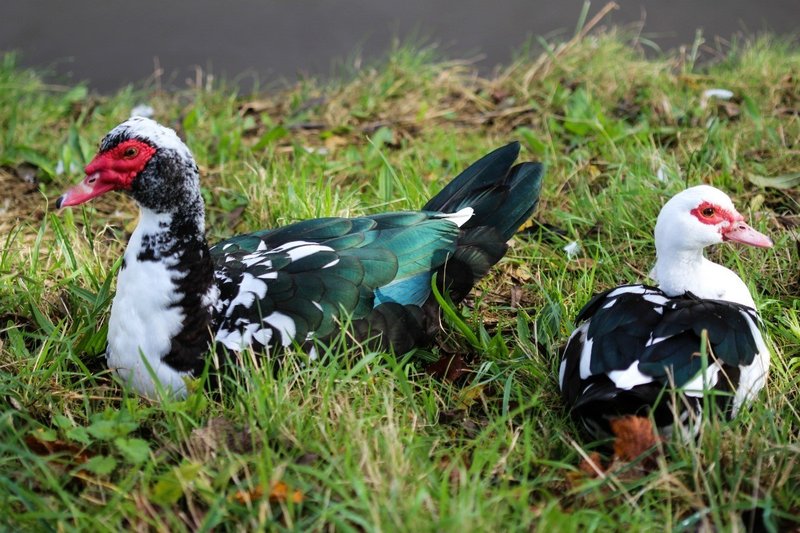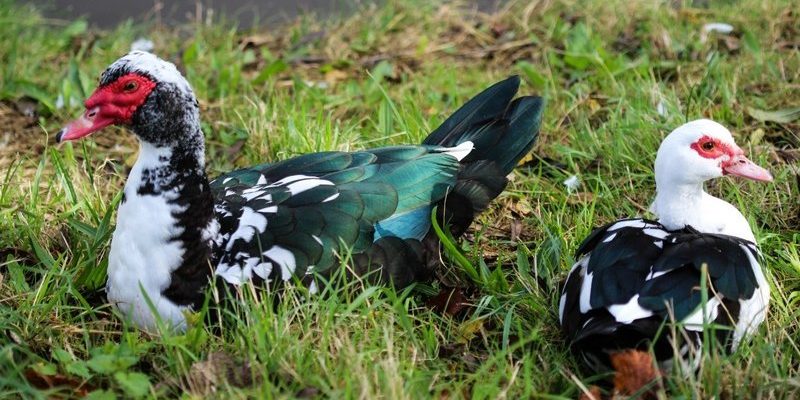
Understanding Muscovy duck vocalizations is like learning a new language. Each sound carries meaning, and knowing how to interpret them can greatly enhance your experience as a duck owner or an admirer. So, grab a cup of coffee, and let’s dive into the world of Muscovy duck calls and what they signify!
What Makes Muscovy Ducks Unique?
Muscovy ducks stand out in various ways, not just because of their vocal talents but also due to their appearance and behavior. Unlike other domestic ducks, Muscovies are quieter overall, which can be a big plus if you live in a noise-sensitive area. They have a distinctive look with their colorful plumage and red facial caruncles—those fleshy bumps around their beaks.
These ducks are also known for their friendly demeanor. Their social nature means they love to interact with humans and other animals. As they express themselves, their vocalizations play a huge role in their social behavior. Understanding these calls can help you bond better with your feathered friends.
This charming combination of looks and personality makes Muscovy ducks a popular choice for many backyard flocks. But their vocalizations? They tell a story all their own.
Understanding Muscovy Duck Sounds
Muscovy ducks produce a variety of sounds, each with its own significance. It’s not just random noise; it’s a rich tapestry of communication. Here are some common vocalizations you might hear:
- Quacking: A familiar sound often associated with ducks. For Muscovies, quacking is usually a sign of excitement or a call for attention.
- Grunting: This low, soft sound often indicates contentment, especially when the ducks are foraging or resting.
- Hissing: When a Muscovy hisses, it’s likely feeling threatened or annoyed. It’s a clear warning to back off!
- Cooing: This gentle noise indicates bonding and affection, especially when ducklings are interacting with their mothers or other ducks.
By paying attention to these sounds, you can start to understand the emotional state of your Muscovy ducks. It’s as though they have a conversation just waiting for you to listen in on.
Why Vocalization Matters
Vocalization is crucial for Muscovy ducks, especially in a flock. It helps them establish social hierarchies and maintain communication. When one duck quacks or grunts, it can signal to others about food sources, predators, or overall flock dynamics.
For example, if a duck hears a loud quack, it might rush over to see what’s going on. In contrast, a more subdued grunt could mean it’s time to relax and enjoy the moment. By understanding these vocal cues, you can better manage your flock’s interactions and well-being.
Being attentive to vocalizations can also help you spot any potential problems. If one of your ducks suddenly becomes silent or changes its usual sounds, it could indicate stress or illness. Keeping an ear out may just help you catch any issues early on.
Muscovy Duck Vocalizations in Different Contexts
Just like humans express themselves differently depending on the situation, Muscovy ducks do too. Their vocalizations can vary based on context: feeding, nesting, or social interactions.
For instance, during feeding time, you’ll likely hear more excited quacking as ducks compete for food. They might even combine that with some soft grunting when they find something delicious. On the other hand, if a Muscovy is nesting, you may hear quieter, more subdued sounds—a sort of gentle cooing that builds a calm atmosphere.
Recognizing these different contexts helps you respond appropriately. If your ducks are more vocal than usual, it might be related to excitement or a potential threat. Knowing when to step in or let them be is where your understanding becomes crucial.
How to Respond to Vocalizations
So, what should you do when your Muscovy ducks start vocalizing? First, listen closely. Try to understand the context behind the noise. Are they simply excited about food? Or is there an underlying concern? Responding appropriately can not only alleviate their stress but can also strengthen your bond with them.
If they’re quacking loudly during feeding, it’s likely just their excitement about the meal. In that case, just enjoy the spectacle of their enthusiasm! But if they’re hissing or making distressed sounds, it might be worth investigating for any signs of trouble—like a predator nearby or a dispute among the flock.
Being responsive to your ducks helps build trust. They’ll know you’re paying attention, and that can make a world of difference in how they feel around you.
Common Misunderstandings About Duck Sounds
It’s easy to misinterpret Muscovy duck sounds, especially if you’re not familiar with their language. For instance, many people believe that all quacks signal distress, but that’s not always the case. Ducks can quack out of joy, communication, or even just for fun!
Another common misunderstanding is thinking that vocalizations only have one meaning. In reality, the emotion behind the sound is crucial. A quack combined with a playful fluttering of wings might suggest happiness, while a quack accompanied by skittish behavior could indicate fear.
Taking the time to learn about their vocalizations can not only enhance your experience but also lead to a deeper appreciation for these charming birds.
Creating a Peaceful Environment for Vocalizations
To encourage healthy vocalizations, you want to create a peaceful environment for your Muscovy ducks. This includes providing enough space, reducing stressors, and ensuring a comfortable living area. Ducks thrive when they feel safe, and a serene atmosphere allows them to express themselves without fear.
Make sure they have plenty of room to roam and explore. Overcrowding can lead to stress and unwanted disputes, which may cause excessive vocalization. Additionally, consider introducing hiding spots, like bushes or small structures, where they can feel secure.
Feeding them a balanced diet is also important. A well-fed duck is often a happy duck, and you’re more likely to hear those endearing grunts and coos than distressed quacks. Plus, keeping their water source clean and accessible can significantly reduce stress, promoting a calm environment where they feel free to express themselves.
In conclusion, Muscovy duck vocalizations aren’t just random sounds—they’re a comprehensive form of communication that reflects their emotions, social interactions, and environment. By understanding these vocalizations and creating a supportive habitat, you can enhance your relationship with these delightful creatures while ensuring their overall health and happiness. So next time you hear them quacking or grunting, take a moment to appreciate the language they speak!

